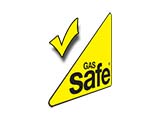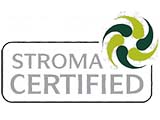
How to obtain epc certificate
Our accredited assessors will inspect your property and issue the EPC, including energy efficiency ratings and recommendations, within a few days.

Talk To Us!
020 8609 7777
Talk to a Friendly Advisor

Energy Performance

Energy Performance Certificate (EPC)
Obtaining an Energy Performance Certificate (EPC) is a legal requirement for landlords and property owners in the UK whenever a property is built, sold, or let. An EPC rates a property’s energy efficiency from A (most efficient) to G (least efficient), provides recommendations for improvement, and helps tenants or buyers understand running costs and environmental impact. Here’s a step-by-step guide to securing your EPC and staying compliant with current and upcoming regulations.
Check if Your Property Already Has an EPC
Before arranging a new assessment, check if your property already has a valid EPC. EPCs are valid for 10 years, so you may not need a new one if your certificate is still current. You can search for an existing EPC by postcode, street name, town, or certificate number using the official GOV.UK EPC register. If your EPC has expired or your property has undergone significant energy improvements, a new assessment is recommended.
Find an Accredited Energy Assessor
If there’s no valid EPC, you must book an assessment with a qualified Domestic Energy Assessor (for residential properties) or a Commercial Energy Assessor (for business premises). Accredited assessors can be found through the GOV.UK service. In Scotland, use the Scottish EPC Register. Only assessments carried out by accredited professionals are valid for legal and compliance purposes.
Alternatively, you can simplify the process and ensure compliance by booking your EPC certificate with Landlords Checks, a trusted provider offering accredited energy assessments and fast digital delivery.
Book and Prepare for the Assessment
Contact your chosen assessor to arrange a property visit. The assessment is non-invasive and typically takes 30–60 minutes for most homes. The assessor will examine key features such as insulation, heating systems, windows, lighting, and the overall size of the property. To help the process, ensure the assessor has access to all rooms, loft spaces, and relevant documentation about recent upgrades or improvements.
Receive Your Certificate
After the assessment, you’ll receive a digital copy of your EPC, usually within a few days. The certificate will display your property’s energy efficiency rating (A–G), estimated energy costs, and tailored recommendations for improvement. You can download and print your EPC from the official register. This document must be provided to prospective buyers or tenants when marketing the property.
EPC Costs
The cost of an EPC varies depending on property type, size, and location. For domestic properties, prices typically range from £35 to £120. Commercial EPCs may cost more due to the complexity of the assessment. It’s advisable to compare quotes from several assessors before booking to ensure a competitive price. Landlords Checks offers transparent pricing and quick turnaround for EPC certificates across the UK.
Legal Requirements and 2025 Changes
It is a legal requirement to have a valid EPC when selling, renting, or building a property. For most rented homes and commercial properties, the minimum standard is currently EPC band E. Landlords must ensure properties meet this standard before letting to tenants, or face fines and enforcement action. From April 2025, all let commercial properties must have a valid EPC, even if no new lease activity is taking place. This includes renewing expired certificates for ongoing leases, not just when a new tenant moves in. Enforcement will be stricter, with fines ranging from £5,000 to £150,000 for non-compliance and potential public enforcement notices.
Future proposals suggest that new tenancies may need to meet EPC band C by 2028 and all tenancies by 2030, so landlords should consider upgrading properties now to stay ahead of the curve. For more details, see domestic landlord guidance and commercial property EPC requirements.
Exemptions
Some properties may qualify for an exemption from EPC requirements, such as listed buildings where improvements would negatively affect character, or where upgrades are not cost-effective. If you believe your property qualifies, you must apply to the Exemptions Register to avoid penalties.
Useful Links and Resources
By following these steps, landlords and property owners can easily obtain an EPC, stay compliant with the law, and prepare for future energy efficiency standards. For a hassle-free experience, remember you can book your EPC certificate with Landlords Checks and get expert support every step of the way.
020 8609 7777
Talk to a Friendly Advisor
Certified and Trusted Professional Engineers











